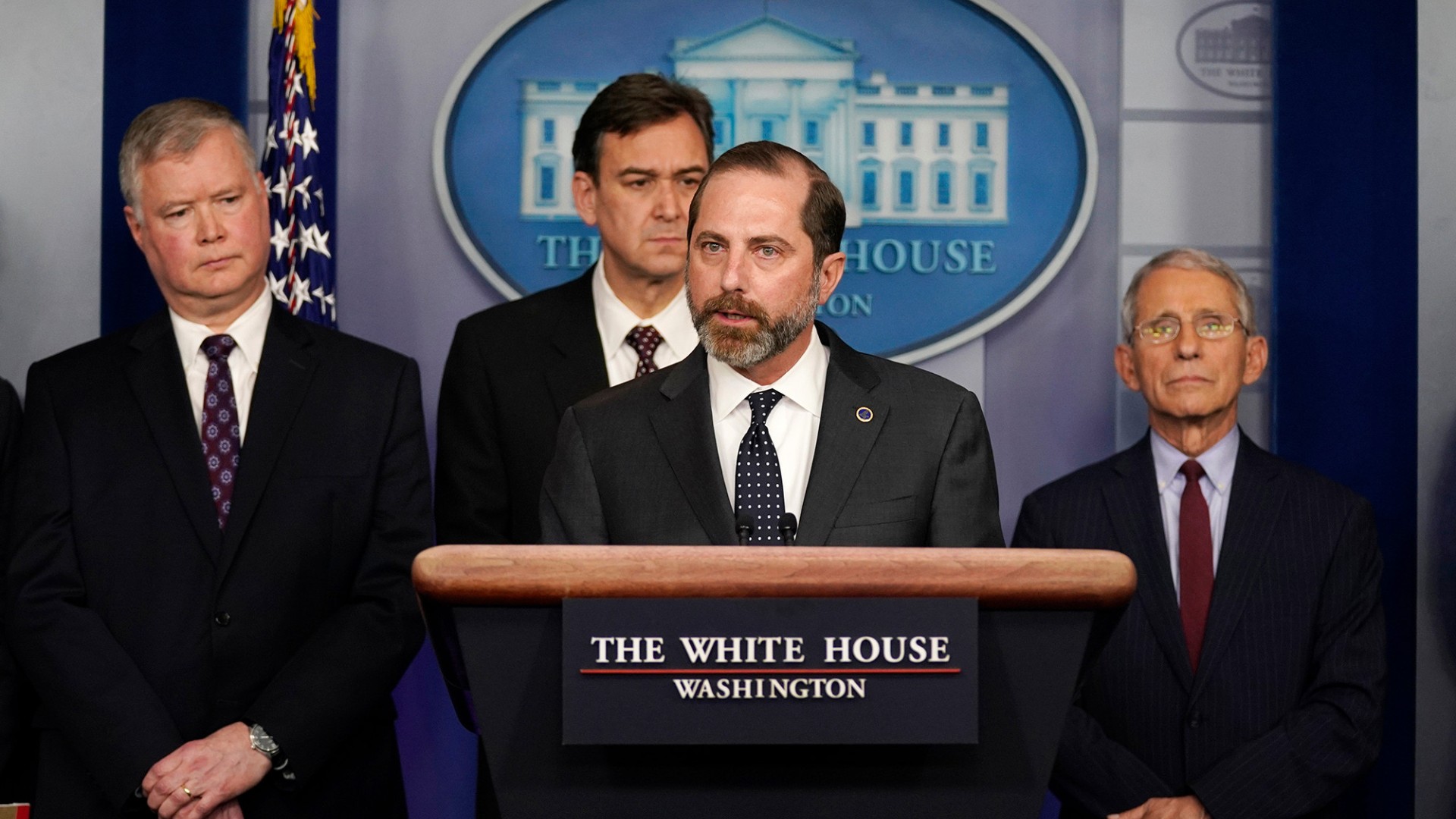Coronavirus Quarantine And Travel Ban Backlash – The Trump administration’s quarantine and travel ban in response to the Wuhan coronavirus could undercut international efforts to fight the outbreak by antagonizing Chinese leaders, as well as stigmatizing people of Asian descent, according to a growing chorus of public health experts and lawmakers.
The World Health Organization’s top official on Tuesday repeated concern that moves that interfere with transportation and trade could harm efforts to address the crisis, though he didn’t directly name the United States.
Meanwhile, unions representing flight attendants, nurses and teachers criticized the administration on Tuesday for not being forthcoming about what kind of screening and treatment individuals will undergo, and some members of Congress say they’re concerned the efforts could stoke racial discrimination.
“This is a virus that happened to pop up in China. But the virus doesn’t discriminate between Asian versus non-Asian,” said Rep. Ami Bera (D-Calif.), a former emergency room physician who will preside over Congress’ first hearing on the outbreak on Wednesday. “In our response we can’t create prejudices and harbor anxieties toward one population.”
The administration on Sunday ordered recent U.S. travelers to China’s Hubei province — the epicenter of the outbreak — to be held in a mandatory quarantine for two weeks. The last time the government took such a step was in the late 1960s, when it held people on the U.S.-Mexico border who lacked evidence of smallpox vaccination.
Currently, 195 Americans who were evacuated from the Wuhan area last week are quarantined on a military base in Ontario, Calif. — and the number is expected to grow as more people are flown out.
RELATED: Coronavirus Global Preparedness Plan
World Health Organization chief Tedros Adhanom Ghebreyesus said Tuesday that widespread travel bans and restrictions weren’t needed to stop the outbreak and could “have the effect of increasing fear and stigma, with little public health benefit.
” Union leaders separately called for a coordinated government response and warned authorities against profiling people of Asian descent while addressing the threat.
The virus has sickened some 20,900 people worldwide and killed at least 427, almost all in China. The FDA late Tuesday granted emergency authorization to distribute a diagnostic test for the virus to public health laboratories around the country. The move eliminates the need to confirm cases by sending samples to the CDC’s headquarters in Atlanta.
The government has broad legal authority to detain people and enforce U.S. borders in the name of public health. But politically and diplomatically, it’s more complicated.
Conservative lawmakers who for weeks have called for a travel ban and mandatory quarantine order say the administration’s response is in the public’s interest.
Sen. Tom Cotton (R-Ark.) praised the “decisive action,” saying the government was “erring on the side of caution.” Cotton and other Republicans have urged the administration to go further and implement a ban on all commercial travel to China.
But the measures have also met with widespread criticism both domestically and internationally.
Voluntary measures and education usually work better than edicts that may lead people to lie about their symptoms and travel history, and encourage countries to conceal outbreaks, public health experts say.
In addition, travel restrictions hurt economies and divert public health resources into enforcing a ban that may not be useful at preventing the spread of infection, according to Saad Omer, director of the Yale Institute of Global Health.
The policies could already be complicating an international response. The Chinese government on Monday accused the U.S. of having “inappropriately overreacted” to the outbreak. And leaders of the Centers for Disease Control and Prevention say they are still waiting for permission from the Chinese government to join an upcoming WHO delegation to Wuhan.
Bera, who will chair a House Foreign Affairs subcommittee hearing on the epidemic on Wednesday, said he’s concerned the Trump administration’s cautionary measures may be backfiring.
“We shouldn’t have an antagonistic relationship with the Chinese. We should be working hand in hand,” he said. Besides the diplomatic blowback, he said, the travel ban “probably doesn’t make sense,” since the outbreak has already spread to several other countries.
“At this juncture, it’s going to be very hard to contain the virus,” Bera told POLITICO, noting that his priority now is to get CDC’s epidemiologists into China to study the origin of the pandemic.
Bera added that the mandatory quarantines “may be overkill,” pointing to experts who say governments should opt for voluntary steps whenever possible, since people usually comply with self-quarantine orders to protect themselves and others from disease.
Because epidemics feed feelings of powerlessness, politicians may feel they have to “do something,” Yale’s Omer said.
But a more sober approach is to convey messages that make people feel they’re part of the solution, like urging hand washing, staying home if they feel ill or getting a flu shot — which targets a disease that currently poses a much bigger threat than coronavirus to the U.S. population.
Meanwhile, the American Civil Liberties Union has warned that the administration’s measures infringe on civil rights. Any detention of travelers or citizens must be “scientifically justified and no more intrusive on civil liberties than absolutely necessary,” said Jay Stanley, an ACLU senior policy analyst.
Administration officials are publicly wrestling with some of these concerns. On a call with reporters Friday, CDC officials acknowledged the policies could “induce fear and stigma,” but argued the public health benefits outweighed the downsides.
“We would rather be remembered for overreacting than underreacting,” said Nancy Messonnier, director of CDC’s National Center for Immunization and Respiratory Diseases.





